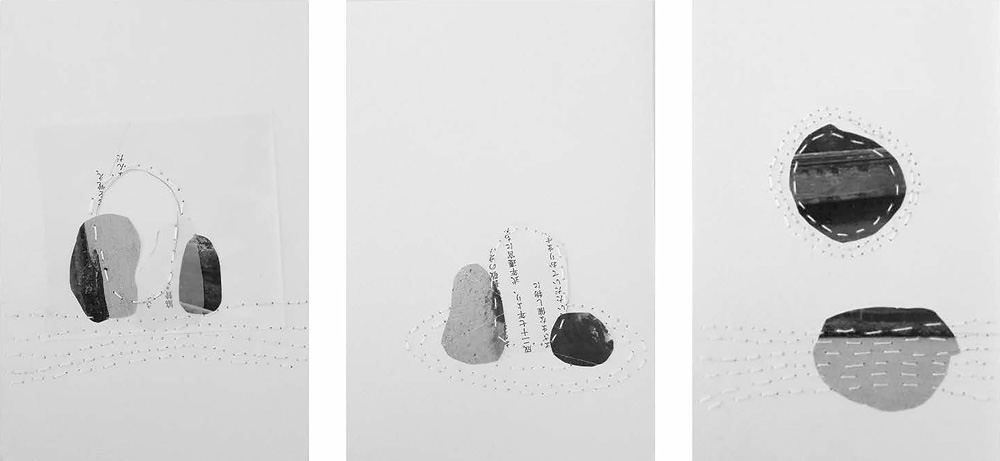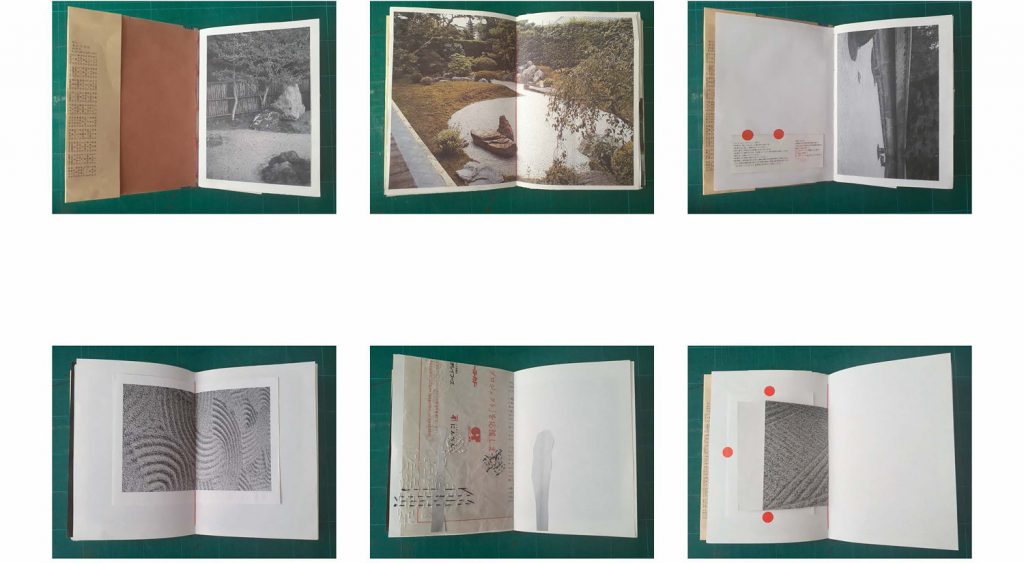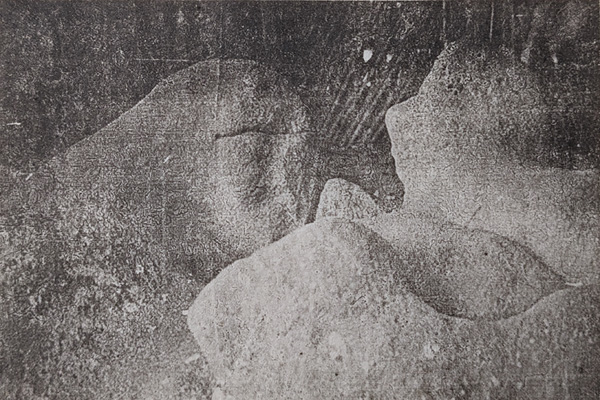Gravel, Rock, Sand explores the aesthetics of absence and the subtlety of human presence through the lens of Japanese garden philosophy and the writings of Roland Barthes. In traditional Japanese gardens, the human hand is ever-present yet deliberately concealed: rocks are placed, rake marks drawn and moss cultivated.
Echoing Barthes’ meditation “No flowers, no footprints – where is man?” this work seeks to reveal presence through trace, effort through silence, meaning through form. The garden becomes a space of negative expression: a language where emptiness holds weight, and where what is not said, shown, or touched carries as much intention as what is. It invites viewers into a contemplative dialogue with absence, asking not only where man is, but how they remain. A meditation on the quiet imprints we leave behind.

Ashu, Japan, 2018

Journal, 2020

Lithograph on Japanese Kozuke Ivory (45 gsm), printed 2023.
No flowers, no footprints -
Where is man?
Is he in the transporting of the rocks?
Or in the traces of the rake?
Or in the work of writing?
- Roland Barthes1
(1The Zen Garden from L'Empire des Signes, 1970)


